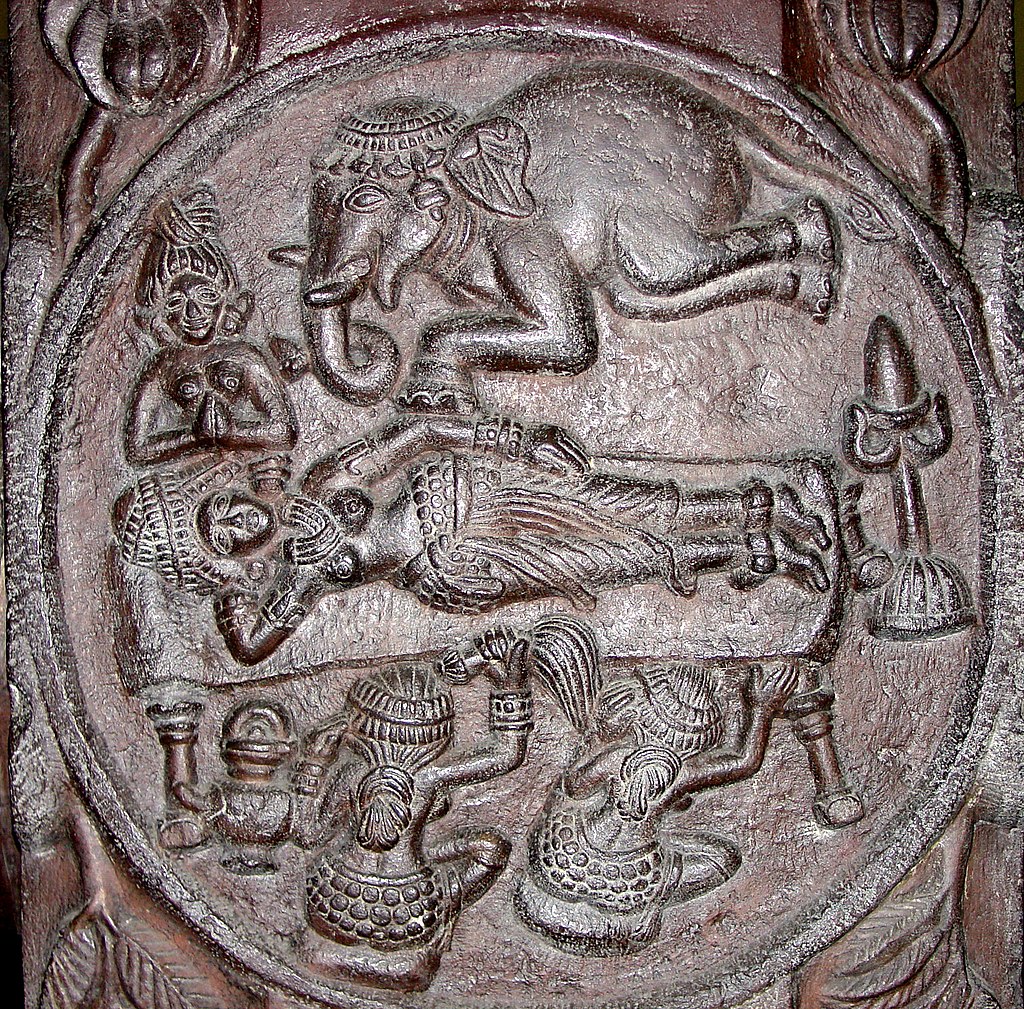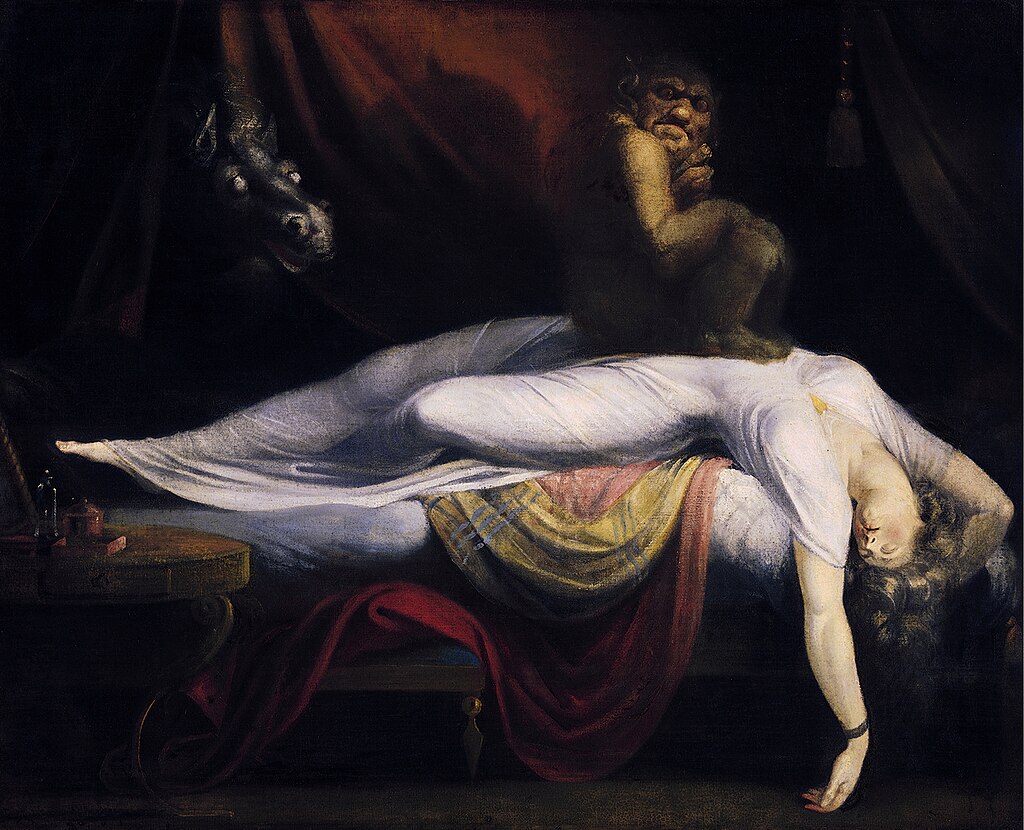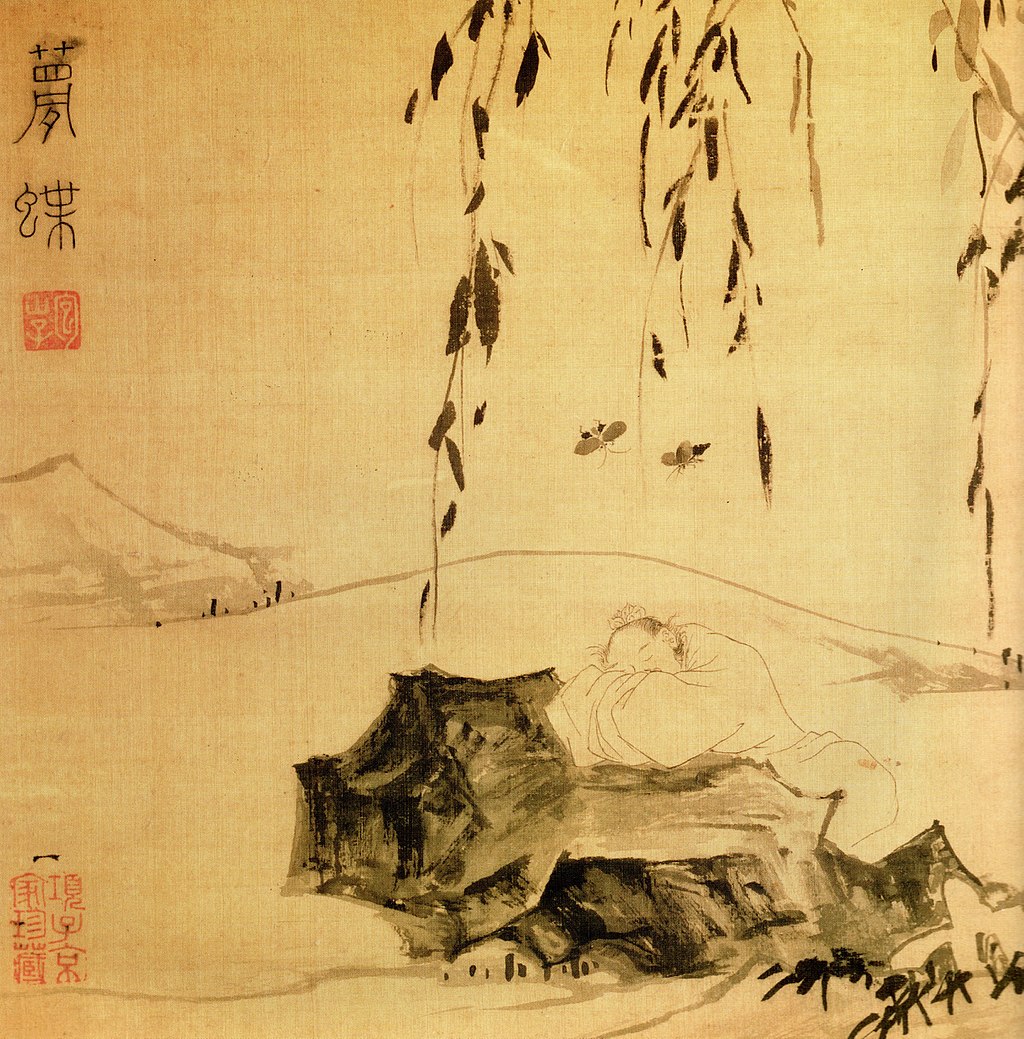Humans have long wondered about the nature and meaning of dreams, but it seems none of us has the answer.
◊
I was convinced they’d be back any minute, and they’d find me – they’d find us. We were in their house, after all. Uninvited. And I knew we’d been living there for a long time, each day potentially the one that would expose us. I knew I shouldn’t be there, but I also wouldn’t leave – or I couldn’t get my parents to recognize we needed to leave. Something like that. Whatever the reason, I felt guilty and scared and . . . wrong.
Then I woke up.
It’s a sort of recurring storyline: I’m in my childhood home, often with one or both parents, and sometimes also my sister. What’s the same every time, what I can’t shake with each iteration of the dream, is this foreboding feeling of being discovered where I don’t belong, and the anticipatory fear and guilt of being found out. After all, the real homeowners would be completely justified to be offended.
.jpg)

Residents flee the 2018 Woolsey fire (Credit: Cyclonebiskit, via Wikimedia)
The facts that my dad’s been dead for many years and my childhood home burned down in California’s 2018 Woolsey fire doesn’t stop the dreams. Or perhaps it’s just that these facts seem to underlie the dream and leave me feeling the same way each time: fearful, full of longing, and consumed by some other hazy emotion I can’t quite pin to a concept. What does the dream mean? Does it have to mean anything at all?
If cognitive processes are like machine activity, then perhaps dreaming is merely the brain’s way of defragging, or rearranging our brain’s data for efficiency.
Long before oneirology, a scientific discipline focused on explaining dreams in terms of brain activity, and long before Sigmund Freud famously began interpreting dreams, ancient peoples were thinking about their significance. A striking commonality among ancient cultures was the belief that dreams were messages. But from whom . . . or what?
For more on the enigmatic human brain, check out the MagellanTV series “The Curious Mind with Nigel Latta”
Ancient Approaches to ‘Runnin’ Down a Dream’
Ancient Egyptians, Mesopotamians, Greeks, Romans, Hindus, Persians, and Hebrews, for example, all believed dreams to involve some sort of divine communication. Spirits and deceased ancestors also figured into ancient cultures’ thinking about dreams, including indigenous American and African cultures, such as the Maya and the mysterious people of the Land of Punt.
The point of dreams, according to many ancient cultures, was to say something about the past, present, or future. The message might be a warning for example, or guidance to help the dreamer better understand themselves. Given that dreams are peculiar – often lacking a storyline or the coherence we find in our daily lives – many of the ancient cultures developed sophisticated means of interpretation.

Buddha’s mother dreams (Credit: G41rn8, via Wikimedia)
The ancient Maya took dream interpretation seriously enough to develop a complicated system of symbols and guidebooks to facilitate the process of explaining dreams. The ancient Egyptians used the Book of Dreams to guide activities such as curing illness, making political decisions, and the timing of attacking enemies. The ancient Rig Veda presented the earliest Hindu thinking on dreams, which included that violence in dreams was a manifestation of evil spirits. Later, in the Upanishads, dreams involving elephants, for example, were signs of good fortune.
In Genesis, the first book of the Torah, we learn that Joseph’s ability to foretell the future from Pharaoh’s dream enabled Egypt to avoid the catastrophe of a famine.
Could They Be ‘Just a Dream’?
Not every ancient thinker believed dreams were the conduit for divine prophecies or other supernatural messages. For example, in his treatise On Dreams, Aristotle concluded that dreams are a sort of side effect of digestion without any purpose. For their part, the Epicureans asserted that “dreams have neither a divine nature nor prophetic power, but are the result of images that impact us.”
Plato found some middle ground. He proposed that one source of a dream’s content could be divine, but he also supposed that dreams could be illusory in a way similar to defective sense perception. When we reflect on the strangeness of our own dreams, this is a reasonable position to take. After all, dreams are radically subjective experiences. I cannot experience your dreams, and you can’t experience mine. Consequently, we cannot examine the dream together in the way that we can, for instance, examine a butterfly.

(Credit: Jeevan Jose, via Wikimedia)
Not only that, but dreams can be elusive. We often awake with memories that seem like fragments or snippets or feelings, rather than the entirety of the dream. Nevertheless, we conclude dreams are in some sense real or otherwise connected with our waking states. For example, one of the ways the ancient Greeks explained dreams was through medicine, not divination. In his work, On Regimen, Hippocrates claims that dreams can reveal the causes of physiological conditions.
Consider, too, that we are most vulnerable in our sleeping states, which may account for ancient thinking not only about dreaming itself but how to protect ourselves from bad dreams. Originally from what is now the Great Lakes area of North America, the Ojibwe created dream catchers – the weblike design caught bad dreams but let good thoughts through.
‘Sleep with One Eye Open…’ What’s in a Nightmare?
Related to bad dreams is the phenomenon of sleep paralysis. Folklore from Nigeria explains sleep paralysis in terms of a female demon who attacks the sleeper during a dream, while a Brazilian tradition explains it in terms of an old crone named Pisadeira who crouches on rooftops at night looking to trample on those sleeping with full bellies exposed to the sky.

Johann Henrich Füssli’s “The Nightmare” (Source: Wikimedia)
Indeed, dreams are strange creatures. We can do things in that realm that are impossible to us in waking life. For me, this involves a recurring dream in which I’m swimming underwater. I’ve been holding my breath for a while, and when I try to surface for air, I can’t. So, I just start breathing water and everything is perfectly in order.
Some believe that dreams about breathing under water symbolize a desire to retreat back into the safety of being in utero, while others believe it symbolizes the feeling of freedom. Still others interpret the dream as the mastery over emotions. All I know is that my worry about not getting to the surface for air is replaced by thinking it’s cool to breathe water. Shrug.
Strange dreams have been the source of all sorts of inventions, innovations, and creations. Mary Shelley’s Frankenstein was inspired by a dream, as was The Beatles classic, “Yesterday.” Alfred Russel Wallace, suffering from hallucinations during a tropical fever, dreamt the theory of evolution, while early 20th century mathematician Srinivasa Ramanujan dreamt that a Hindu goddess appeared to show him profound mathematical proofs. Perhaps that’s what people have in mind when they say someone dreamed up an idea.
Apparently, that’s how the scientific method got off the ground. According to 17th-century thinker, René Descartes, the night of November 10, 1619, was taken up with three dreams, one of which was a nightmare. But how his interpretation of these dreams led him to the stepwise approach to scientific knowledge remains a mystery – no extant writing has been found. It is nevertheless fascinating that someone so fiercely committed to the realm of pure reason would seriously undertake dream interpretation.
Is ‘Life but a Dream’?
Dreams have also been remarkably useful philosophical devices. Recall Plato’s thinking about dreams as illusory, akin to defective sense perception. Plato also thinks that sense perception is an unreliable source of knowledge, given its changeable nature. Descartes, following in this vein, asks us to consider how we could rely on sense perception to distinguish dreaming from waking.
In his Meditations on First Philosophy, Descartes uses a dream sequence to push the limits of doubt about sense perception. If the standard of knowledge is sensation, that is, if I say I know something because I see, hear, taste, smell, or touch it, I run into a problem. That’s because I also have sense experiences in my dreams – at the time I’m dreaming, what I experience feels as real as my waking life. So, sensation can’t help me distinguish between the two states. Indeed, I may be dreaming right now, as I type these words.
Long before Descartes came on the scene, Taoist philosopher, Chuang-Tzu asks us to think about the nature of change and the uniformity of reality through this story:
Once Zhuang Zhou dreamt he was a butterfly, a butterfly flitting and fluttering around, happy with himself and doing as he pleased. He didn’t know he was Zhuang Zhou. Suddenly, he woke up and there he was, solid and unmistakable Zhuang Zhou. But he didn’t know if he was Zhuang Zhou who had dreamt he was a butterfly, or a butterfly dreaming he was Zhuang Zhou. Between Zhuang Zhou and a butterfly there must be some distinction! This is called the Transformation of Things.




 Butterfly Dream (Source: Wikipedia)
Butterfly Dream (Source: Wikipedia)
‘Dream On’
Thinking about dreams has led to some interesting questions. For example, why should we believe waking life is more real than dreaming? If we do something bad in our dreams, are we morally responsible for it?
For millennia, thinkers have also wondered what type of thing a dream is, and scientists continue trying to pin down both its nature and mechanism. Is it more like a hallucination than a perceptual illusion? Is it a sort of memory organizer? Does it have anything to do with psychosis? Does dreaming help us solve problems and improve our creativity? What part or parts of the brain are involved in dreaming? Are dreams ‘the royal road to the unconscious,’ as Freud believed? Or are dreams better explained by Carl Jung’s theory that dreams express our imagination?
Dreams may just be the brain’s way of processing emotions and other experiences, rather than a spirit or divinity trying to communicate. As we’ve seen, some of the ancients thought so, too. Perhaps part of a dream’s allure, however, is the fact that we still don’t know why we dream. Despite significant strides made in the technologies that allow us to study the brain, we still can’t explain the reason for dreaming more conclusively than the ancients. And while we may sleep to rest and restore, our dreams are full of life.
Maybe I’ll keep breathing underwater.
Ω
Mia Wood is a philosophy professor at Pierce College in Woodland Hills, California, and an adjunct instructor at the University of Rhode Island, Community College of Rhode Island, Salve Regina University, and Providence College. She is also a MagellanTV staff writer interested in the intersection of philosophy and everything else. She lives in Little Compton, Rhode Island.
Title Image credit: pxfuel.com

